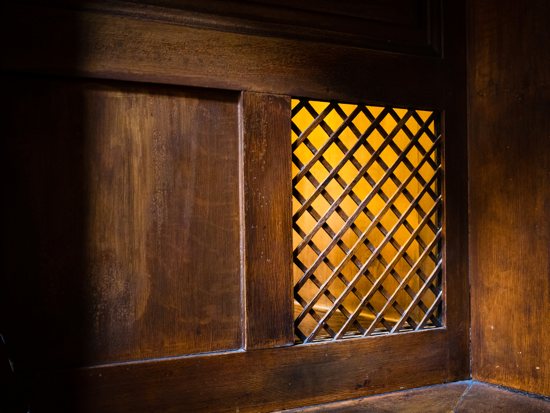
Once a week, I take a seat in an open chair in a church basement with a hot cup of coffee. I’m what’s known as a “friend of Bill,” meaning I’m a member of Alcoholics Anonymous (A.A.), a fellowship of people coming together to overcome their drinking problems (a fellowship co-founded by a man named Bill Wilson).
I sit quietly and listen to testimonies from other alcoholics. I laugh, I cry, but most importantly, I humbly accept my place there, that I am an alcoholic, I always will be. There will always be a next week in which I need to return to that church and humbly sit.
The harsh reality is there is no such thing as a recovered alcoholic. Recovery as we understand it is unattainable during a lifetime. Alcoholics or addicts may be sober, free from the substances that poison us, but we are still addicts by our biological nature. We crave what hurts us.
Alcoholism is one of two areas of brokenness in my life that I can never graduate from. When I decided on July 6, 2022, to put the bottle down, I unknowingly accepted this reality and accidentally completed step one of the 12-step recovery program.
Step one: “We admitted we were powerless over alcohol — that our lives had become unmanageable.”
This first step revealed to me that recovery is a lifelong journey, but one I could not begin without first admitting that I was broken and powerless over the substance that abused me as much as I abused it. Step one requires humility. After a year in recovery, I reached steps four and five, which, to me, resembled the sacrament of reconciliation.
Step four: “Made a searching and fearless moral inventory of ourselves.”
Step five: “Admitted to God, to ourselves, and to another human being the exact nature of our wrongs.”
A.A. is not affiliated with any religion, but I am, and that’s Catholicism. When I get in line for the confessional, I examine my conscience by making a searching and fearless moral inventory of myself. I acknowledge all my sins, my weaknesses, setbacks and shortcomings and I reflect on the nature of God’s forgiveness. When it’s my turn, I kneel and make the sign of the cross and I admit to God, myself and another human being the exact nature of my wrongs. I am forgiven, but when I leave, I’m still a sinner. During my penance in the small adoration chapel, I thank God for forgiveness, and I remember that I will be back.
This relationship I had with my own addiction while in recovery helped me better understand an affliction we all suffer from. We are all sinners, and we will be this side of heaven. But what I failed to understand before was that confession doesn’t just remove our sins; it instills in us grace and renewed strength. The Catechism of the Catholic Church defines grace as “Favor, the free and undeserved help that God gives us to respond to his call to become children of God, adoptive sons, partakers of the divine nature and of eternal life” (CCC 1996).
It’s fitting that of all the liturgical seasons, Lent seems to be the most humbling. We can understand it to be a miserable time of fasting, something to endure. Though it’s much more than that, a priest friend of mine, Father Joseph Bambenek, associate director of the Office for the Renewal of Structures at the Archdiocese of St. Paul and Minneapolis, said Lent is a time for confession, a season of repentance. He explained that there is a big push for penance services, and many priests will go out of their way to offer help in hearing confessions.
“There is nothing better as a priest,” Father Bambenek said, “than to be God’s instrument of mercy for someone who has been carrying the burden of significant sin for a long time.”
This time of penance and fasting allows us to look more deeply into our own hearts and discover what is broken, lacking or lagging, with the hope that with God’s help, we can be better, confident of the psalmist’s inspired words, “a heart contrite and humbled, O God, you will not spurn” (Ps51). We are meant to leave Lent in a deeper relationship with Jesus’ sacrifice to conquer death, sin and addiction, too.
Each week, I take two seats, one in A.A. and one in line for confession, to remember that I am broken, but with God’s help I am not hopeless, a reality captured in a simple prayer to God: “I can’t. You can. Please do.”
There are numerous resources for those interested in more information about recovery. Here are three:
Trinity Sober Homes –– trinitysoberhomes.org
Catholic in Recovery –– catholicinrecovery.com
Substance Abuse and Mental Health Services Association national helpline




